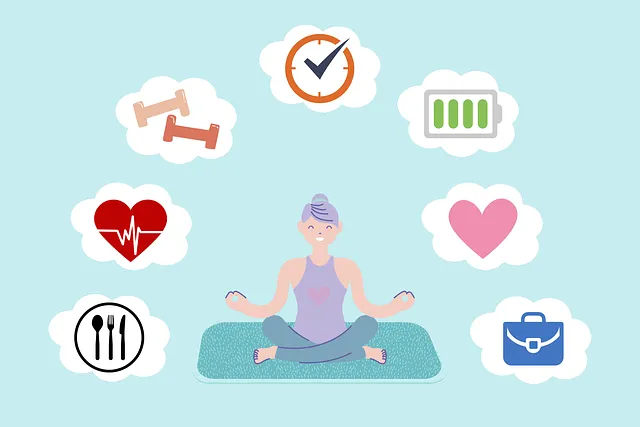Boulder Kaiser Permanente's comprehensive mental health coverage addresses social challenges faced by individuals with conditions like depression, anxiety, and schizophrenia. Through programs focused on self-care, community engagement, and social skills training, they empower patients to manage symptoms effectively. Their holistic approach includes support groups, therapy sessions, and burnout prevention for healthcare providers, fostering resilience and meaningful relationships within the community. This inclusive strategy enhances long-term mental wellness, particularly through empathy development and mindfulness practices, improving quality of life for those navigating their mental health journeys in Boulder.
Social skills training is a vital component in managing mental health conditions, offering individuals the tools to navigate social interactions with confidence. This comprehensive guide explores how these skills are essential for overall well-being, particularly within the context of Boulder Kaiser Permanente’s mental health coverage. We delve into the impact of mental health on social abilities, the integral role of training in treatment plans, and the unique support offered by Kaiser Permanente. Discover effective strategies to enhance social interactions and harness the benefits of Boulder Kaiser Permanente’s mental health resources.
- Understanding the Impact of Mental Health Conditions on Social Interactions
- The Role of Social Skills Training in Treatment Plans
- Boulder Kaiser Permanente Mental Health Coverage: Benefits and Support for Training
- Implementing Effective Strategies for Social Skills Development
Understanding the Impact of Mental Health Conditions on Social Interactions

Mental health conditions significantly shape an individual’s social landscape, often leading to challenges in navigating everyday interactions. Conditions such as depression, anxiety disorders, and schizophrenia can impair communication skills, emotional regulation, and overall confidence in social settings. This impact is not merely a by-product but a complex interplay of symptoms, treatment side effects, and the stigma associated with mental health struggles. For instance, individuals dealing with anxiety may experience heightened distress in crowded places or during conversations due to fears of judgment or embarrassment. Similarly, depression can make social gatherings seem pointless or overwhelming, leading to social withdrawal. The Boulder Kaiser Permanente mental health coverage recognizes these challenges and offers support through various programs aimed at empowering individuals to manage their conditions effectively.
Self-care practices are a cornerstone of managing mental health, especially in fostering healthy social connections. Engaging in activities that promote relaxation, stress reduction, and mindfulness can significantly enhance one’s ability to engage socially. Community outreach program implementations, like support groups or therapy sessions, play a vital role in creating safe spaces where individuals can connect, share experiences, and develop coping strategies together. Such initiatives provide an environment conducive to building resilience and fostering meaningful relationships, ultimately contributing to improved mental well-being and reduced feelings of isolation. Anxiety relief techniques, for instance, can empower individuals to participate more actively in social situations, enhancing their overall quality of life.
The Role of Social Skills Training in Treatment Plans

Social Skills Training plays a pivotal role in comprehensive treatment plans for individuals managing mental health conditions, especially under Boulder Kaiser Permanente mental health coverage. These programs are designed to equip patients with essential communication and interaction strategies, fostering better relationships and enhancing overall mental wellness. By focusing on developing social skills, such as active listening, empathy, and assertiveness, participants gain confidence in their abilities to navigate social situations, a crucial aspect of recovery often overlooked.
In the context of Boulder Kaiser Permanente’s services, Mental Wellness Coaching Programs emphasize self-esteem improvement and mindfulness meditation techniques. These training sessions help individuals overcome social anxiety, improve emotional regulation, and build supportive networks. Incorporating such initiatives into treatment allows for personalized care, addressing unique challenges faced by each patient. This holistic approach not only complements medical interventions but also encourages long-term success in managing mental health conditions, ultimately contributing to a improved quality of life.
Boulder Kaiser Permanente Mental Health Coverage: Benefits and Support for Training

Boulder Kaiser Permanente offers a comprehensive mental health coverage package designed to support individuals managing various conditions. This includes access to a diverse range of therapy services, counseling, and support groups facilitated by licensed professionals. One notable benefit is their focus on holistic well-being, addressing not just symptoms but also fostering resilience and coping mechanisms for long-term mental health management.
The organization’s commitment extends beyond individual treatment with initiatives like community outreach program implementation and burnout prevention strategies for healthcare providers. These efforts recognize the interconnectedness of mental health within communities, promoting a supportive environment that enhances recovery and boosts confidence. Boulder Kaiser Permanente’s inclusive approach ensures individuals receive the comprehensive care needed to navigate their mental health journeys effectively.
Implementing Effective Strategies for Social Skills Development

Implementing effective strategies for social skills development is a crucial component of mental health care, especially for individuals navigating conditions like anxiety or other challenges covered under Boulder Kaiser Permanente mental health coverage. At the core of this process lies a holistic approach that integrates compassion cultivation practices into daily routines. By fostering a sense of empathy and understanding, these practices not only enhance interpersonal interactions but also contribute to significant Anxiety Relief.
Incorporating Self-Care Routine Development for Better Mental Health is another key strategy. Engaging in activities that promote mindfulness, relaxation, and stress management enables individuals to better regulate their emotions during social situations. This, in turn, enhances their confidence and ability to connect with others on a deeper level, ultimately enriching their overall well-being.
Social skills training plays a pivotal role in enhancing the quality of life for individuals with mental health conditions. By addressing communication, relationship-building, and emotional regulation, these programs empower people to navigate social environments more effectively. In Boulder, Kaiser Permanente’s comprehensive mental health coverage offers valuable support for such initiatives, making accessible evidence-based treatments that foster growth and inclusion. With the right strategies in place, individuals can develop the skills needed to connect, contribute, and thrive within their communities.






